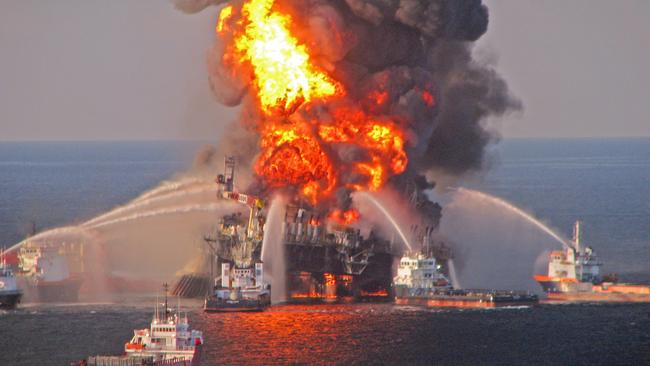Senate inquiry to fire BP’s battle of the Bight with greens
Oil giant BP’s planned deepwater drilling in the Great Australian Bight is building as a major environmental confrontation.

Oil giant BP’s planned deepwater drilling in the Great Australian Bight is building as a major environmental confrontation, with a Senate inquiry set to probe the potential risks and quality of federal oversight.
The petroleum industry yesterday welcomed the inquiry as an opportunity to highlight the economic benefits of oil and the long track record of environmentally safe operations in Australia.
But environment groups want to highlight BP’s lack of thorough risk assessment so far, and its disastrous Deepwater Horizon oil spill in the Gulf of Mexico.
Over several months, key environment group representatives have been lobbying politicians and financial analysts around the world as part of a campaign to take on one of the world’s biggest corporations. The planned campaign is on a par with the fight against Woodside’s proposed Browse Basin gas hub at James Price Point in Western Australia and the international blitz against Adani’s proposed Carmichael coalmine in Queensland.
The Senate inquiry, jointly sponsored by the Greens and South Australian independent Nick Xenophon, will investigate “the potential environmental, social and economic impacts of British Petroleum’s planned exploratory oil drill project and any future oil or gas production in the Great Australian Bight”.
It will consider the effect of a potential drilling accident on marine and coastal ecosystems including marine reserves and whales.
Wilderness Society national campaign director Lyndon Schneiders said the inquiry would provide a much-needed opportunity to properly scrutinise the environmental, economic and social impacts of BP’s plans “especially with the company in such a precarious financial situation”.
This month, BP announced a $US6.5 billion ($9bn) loss for 2015 due to a fall in world oil prices. It has paid an estimated $US42bn in compensation over the Deepwater Horizon oil spill.
The company is still betting on a long-term recovery in oil prices and is determined to start the $1bn Great Australian Bight drilling program before the end of 2017 to fulfil the conditions of its exploration licence. It has announced plans to drill in the Bight at depths of about 1000m to 2500m. At the closest point, the proposed drilling area is about 400km west of Port Lincoln and 300km southwest of Ceduna in South Australia.
According to BP’s modelling, “in a worst-case scenario (a loss of control of the well resulting in uncontrolled flow of petroleum into the ocean), oil would take several weeks to reach shore and the direction in which it could drift varies due to seasonal differences in current and wind direction”.
Independent modelling commissioned by the Wilderness Society has shown an oil spill could result in the closure of fisheries in the Bight, Bass Strait and even the Tasman Sea. Even a low-flow oil spill could impact all of southern Australia’s coast, it says.
Environment groups are concerned that Environment Minister Greg Hunt has delegated the government’s environmental powers under the EPBC Act to an independent authority they claim is largely made up of industry representatives. Australia’s offshore oil and gas authority, NOPSEMA, rejected BP’s first application to drill four exploration wells in the Bight because of inadequacies in its plans.
LYNDON SCHNEIDERS P12


To join the conversation, please log in. Don't have an account? Register
Join the conversation, you are commenting as Logout